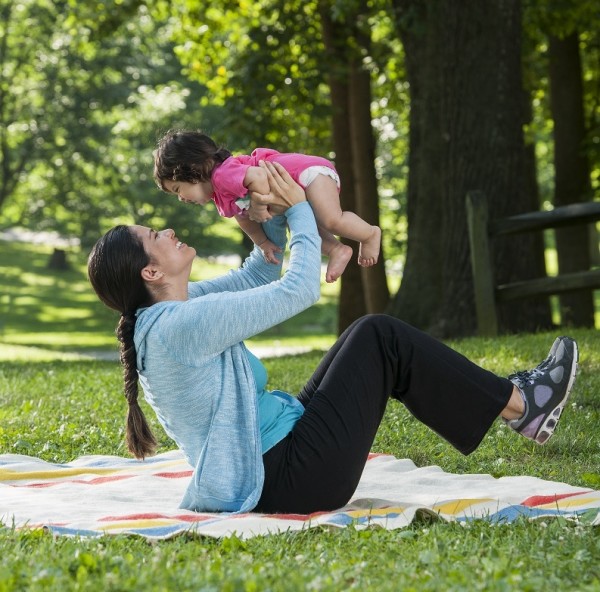During NACCHO’s webinar, “Protecting Children’s Environmental Health During COVID-19: Supporting Child Care Programs,” held on April 28, 2021, we heard from three environmental health experts.
Direct Intervention and Education for Staff in Childcare Programs
Vickie Leonard, RN, FNP, PhD shared lessons from Richmond, California, where a childcare facility in an underserved community near an oil refinery was able to implement changes that reduced children’s exposure to environmental hazards. The program provided environmental health education to staff as well as direct intervention, including the introduction of safer cleaning products and replacement of hazardous furniture such as vinyl nap mats.
Post intervention, staff reported increased awareness of environmental health hazards and strategies to mitigate them, as well as a reduction in respiratory symptoms among both staff and children at the facility. Air samples collected pre and post intervention showed that some volatile organic compounds decreased, in particular, a reduction in chloroform was noted, possibly due to a reduction in the use of bleach. The results suggest that an intervention model focused on both education and environmental modification in early care settings can help protect children’s health.
Educational Efforts, Partnership Building, and Community Engagement with Pediatricians
Gredia Huerta-Montañez, MD, FAAP highlighted both lessons learned and ongoing challenges for protecting children’s health in Puerto Rico. The island territory remains a persistently underserved community that has experienced concurrent environmental health disasters. The effects of the devastating 2017 hurricane season can still be felt in many areas and these effects have been exacerbated by an earthquake and subsequent seismic activity in January 2020, as well as the COVID-19 pandemic starting in March 2020. These combined crises have disrupted access to the basics for already vulnerable communities, including lack of safe housing or clean water for some.
The community of pediatricians has been very active on the island, with a focus on promoting environmental health. Through educational efforts, partnership building, and community engagement, pediatricians in Puerto Rico have been working to provide information about a range of environmental health topics including pediatric asthma prevention, preparedness for hurricane season, and COVID-19 prevention and infection control. While many challenges remain, the efforts to manage concurrent disasters in Puerto Rico demonstrates how active relationships between pediatricians and their local communities can be a key part of environmental disaster preparedness and response.
Transparent Outreach Strategies and Clear Guidance on Safe Reopening of Buildings
W. David Brown, RS, MPA shared lessons from North Carolina’s COVID-19 response in childcare settings. A significant challenge in the pandemic response has been the spread of rumors and misinformation. To ensure reliable information was provided, the state has held regular stakeholder meetings and emphasized transparency with stakeholders. Where information was uncertain or not available, state health officials indicated that current guidance was based on the best available information but subject to change as more information became available. North Carolina’s system for outreach also relies on childcare consultants to help share reliable public health information in local communities.
As COVID-19 rates begin to decline, the state has begun to provide guidance on safe reopening of buildings. This guidance includes exterior maintenance, which covers issues such as mold, leaf removal, and paint delamination. This guidance also covers interior maintenance issues such as HVAC system repairs or upgrades in consultation with qualified professionals, water system flushing and calibration to prevent issues such as the spread of legionella, and safe storage for hazardous products. The response to COVID-19 in North Carolina shows how a robust network of stakeholders, as well as local resources such as childcare consultants, can help states and local communities coordinate an effective approach to environmental health in early childcare settings.
If you were unable to attend and/or would like to review materials from this webinar, please access our resources below:
For any questions, please contact [email protected].
Additional Resources
- *NEW* National Association of County and City Health Officials: Environmental Health and COVID-19 Resource Library: https://www.naccho.org/programs/our-covid-19-response/environmental-health-and-covid-19-resource-library
- ChildCareStrongNC: Public Health Toolkit: https://covid19.ncdhhs.gov/media/220/download
- Children’s Environmental Health Network: Eco-Healthy Child Care: https://cehn.org/our-work/eco-healthy-child-care/
- U.S. Environmental Protection Agency: Design for the Environment Disinfectants Program: https://www.epa.gov/pesticide-labels/dfe-certified-disinfectants
- U.S. Environmental Protection Agency: List N Tool: COVID-19 Disinfectants: https://cfpub.epa.gov/giwiz/disinfectants/index.cfm
- Western States Pediatric Environmental Health Specialty Unit: Environmental Health in Early Education Project: https://wspehsu.ucsf.edu/projects/environmental-health-in-early-care-and-education-project/






